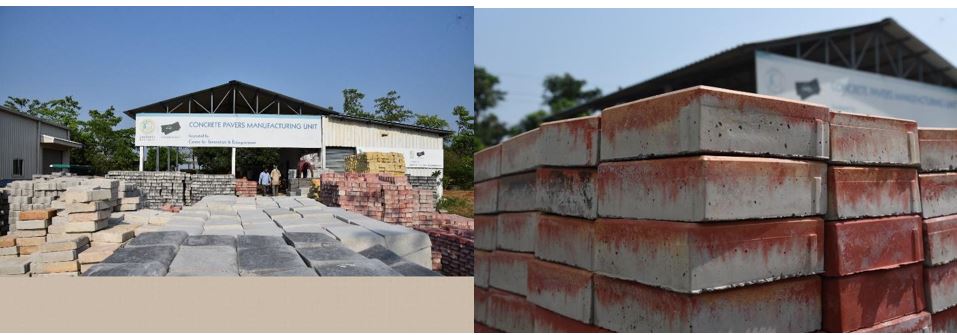Happenings
Energy Wastage Review and Identification
Centurion University is dedicated to optimizing its energy usage and minimizing waste through systematic energy reviews and audits. These initiatives aim to identify areas of high energy consumption and inefficiency, and to implement effective strategies for energy conservation. By leveraging advanced technologies and sustainable practices, the university strives to reduce its overall energy footprint, promote environmental stewardship, and enhance operational efficiency. Key initiatives include comprehensive energy audits, the installation of sensor-based energy conservation systems, and innovative waste management and recycling programs. These efforts contribute to a greener campus and foster a culture of sustainability among students, staff, and the broader university community.
Energy Audit
The main objective of an energy audit of any building is to identify the end use of energy in the building and its Energy Conservation opportunities; and as a feasibility study leading to the implementation of an energy management programme. The audit procedures can be expanded as needed in the various phases of the energy program, with the application of each succeeding phase yielding more information on energy use, and more opportunities for raising energy efficiency & its conservation.
The University conducts energy audits to systematically assess and analyze energy usage, identify areas of energy inefficiency, and propose recommendations for optimizing energy consumption. It helps to identify opportunities to reduce energy consumption and improve energy efficiency in campus facilities, including academic buildings, hostels, administrative offices, and other campus infrastructure. The Bhubaneswar campus exhibits the highest energy usage, consuming a total of 2,606,618 units with an energy density of 26.07 kWHr/Sq. Mtr. The Paralakhemundi campus follows, with an energy consumption of 764,485 units. The Rayagada campus records a significantly lower usage, with 64,089 units, while the Bolangir campus shows the least consumption, with only 14,030 units. This data highlights the substantial differences in energy consumption among the different campuses.
Sensor-Based Energy Conservation Report
Centurion University has installed sensor-based solar street lights in order to conserve energy. These sensors detect movement within a specified range and activate the street lights when motion is detected, conserving energy when no activity is present. Light sensors, also known as dusk-to-dawn sensors, automatically adjust the brightness of the lights based on ambient light conditions and any traffic movement. 531 Solar LED lights (90% of the total) have been installed in three of its campuses. A timer has been fitted to control the street lights. The street lights are sensor based depending upon traffic timings. It glows brighter most during evening time and gradually its lux comes down during dawn. The University has saved 505611 kWHr i.e., 18.2*107 kJ of energy costing around 30 Lacs during the last four years. It saves around 15% of the total electrical energy consumption of the university.
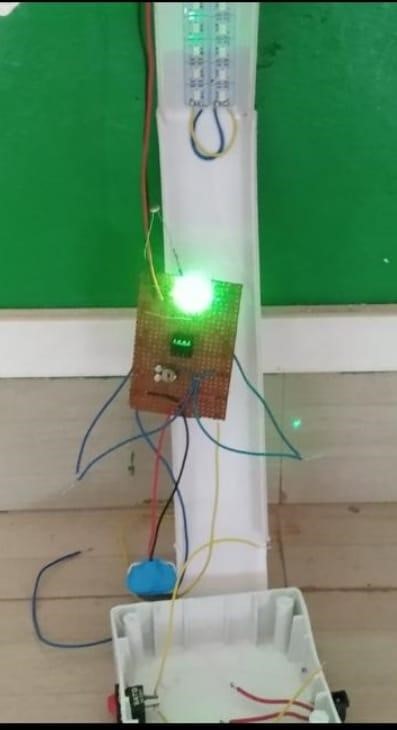
Degradable and Non-Degradable Waste Management
Centurion University is dedicated to environmental sustainability through a comprehensive waste management system that addresses both degradable and non-degradable waste.
Solid Waste Management
Waste Segregation Program: Categorizes waste into biodegradable and non-biodegradable fractions.Strategic Placement of Bins: Segregation bins are placed across campus for efficient waste sorting. Regular Collection Drives: Ensures timely and effective waste removal from campus facilities
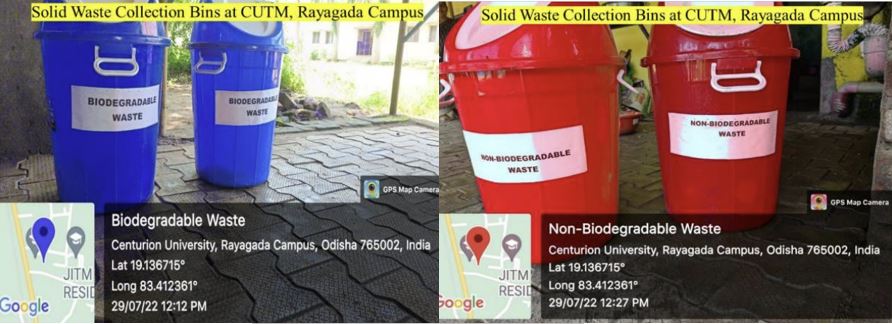
Waste Disposal
Non-biodegradable waste is sent to waste-to-energy facilities. Biodegradable waste is composted into nutrient-rich material for landscaping and agriculture
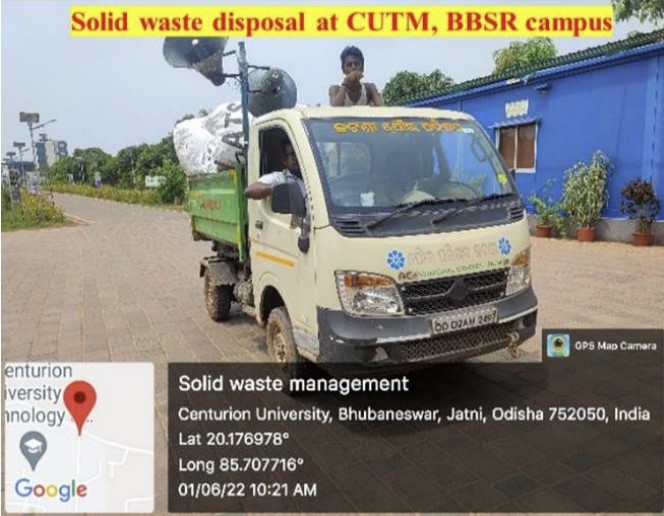
Recycling Initiatives
The University actively promotes recycling by engaging in paper, plastic, and e-waste recycling initiatives. Recycling bins are placed throughout the campus, and awareness campaigns encourage participation.
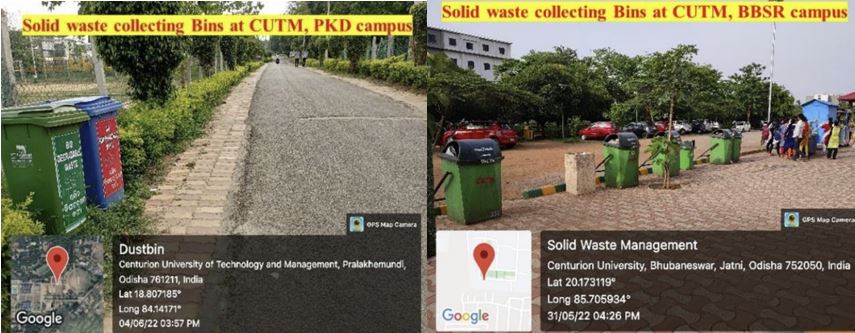
Liquid Waste Management
Wastewater from campus facilities undergoes treatment through eco-friendly methods. A wastewater treatment plant employs biological and chemical processes to purify water before release
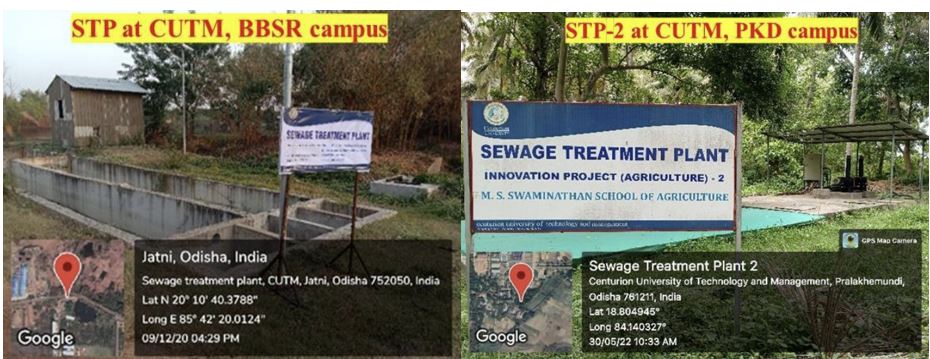
Reuse and Recycling
Treated wastewater is reused for non-potable purposes, such as irrigation and cooling systems, reducing the demand for freshwater sources.
Biomedical Waste Management
Segregation and Handling
Biomedical waste is segregated at the point of generation and stored in color-coded bins. Trained personnel handle biomedical waste with strict adherence to safety protocols.
Safe Disposal
Biomedical waste is disposed of through authorized agencies, ensuring compliance with biomedical waste disposal regulations.
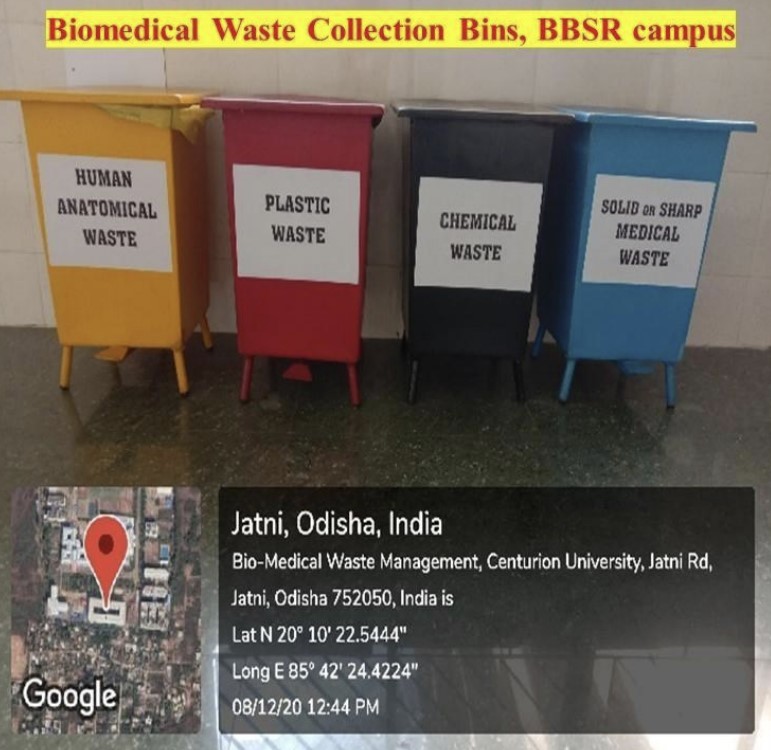
Waste Recycling Systems
The University recycles paper, plastic, fabric and e-waste. Recycling programs contribute to reducing landfill waste and conserving resources
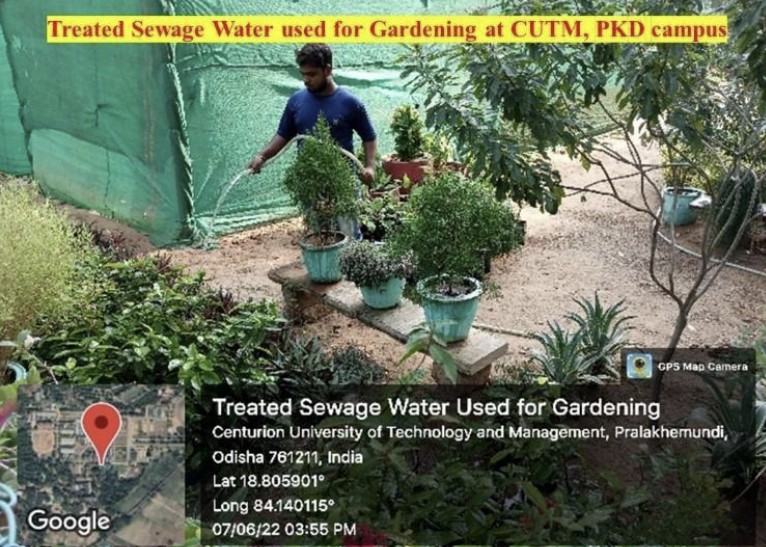
Paper, cardboard and fabric waste is collected and sent to an in-house paper recycling facility. Plastic waste is processed and used in innovative ways, including the production of paver blocks.
Biodigester Technology
Biodigesters on campus utilize organic waste to produce biogas and nutrient-rich slurry. Biogas is used for cooking and electricity generation, reducing reliance on fossil fuels. Biodigesters reduce methane emissions from organic waste decomposition. Nutrient-rich slurry is used as organic fertilizer, enhancing soil fertility and agricultural productivity.
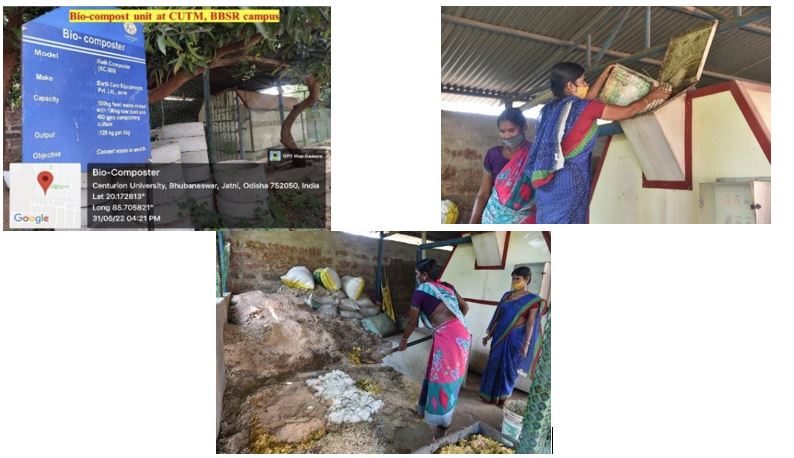
Vermi-Composting
Vermi-composting employs earthworms to convert organic waste into high-quality compost. The resulting vermicompost is used for landscaping and agricultural purposes.
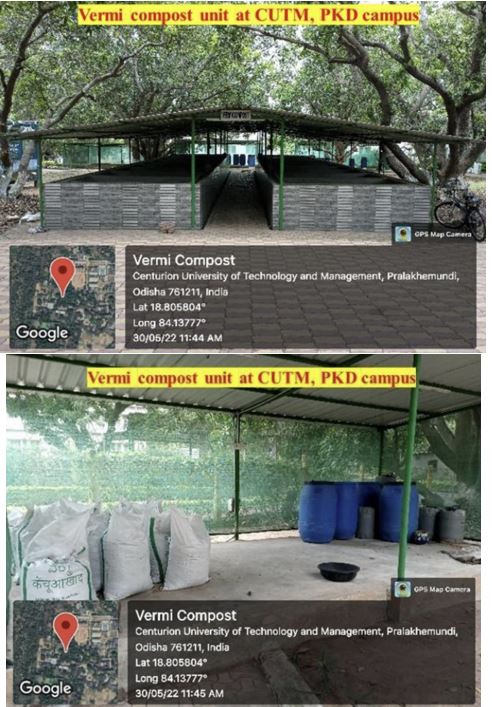
Biogas Production
Biogas plants utilize organic waste from kitchen and agricultural sources to produce biogas. Biogas is a clean and renewable source of energy used for cooking and electricity generation. Biogas contributes to reducing greenhouse gas emissions and the carbon footprint of the institution. The generated electricity supplements the campus’s energy needs, leading to cost savings
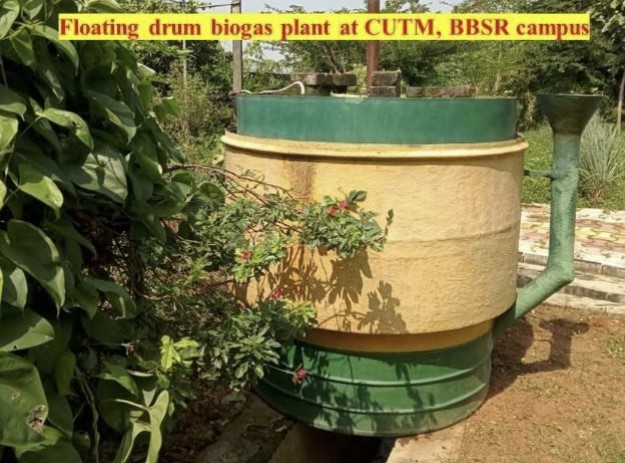
Pavers Block Using Plastic Waste
Although Centurion University is declared as a plastic free campus, the management has failed to eliminate all plastics from campus. Plastic waste collected on campus is processed and incorporated into the production of pavers blocks. This innovative approach reduces plastic waste in landfills and conserves natural resources. Pavers blocks made from recycled plastic are used in landscaping and construction projects, creating sustainable and durable infrastructure.
